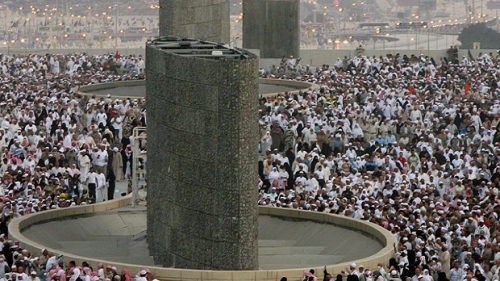Understanding `Kufr`

In the Name of God
the Most Compassionate, the Most Merciful
During an extensive conversation about the relationship of a Muslim with non-Muslims, the issue of who exactly is a kafir , or one who "denies the truth" (frequently translated as "infidel"), came up. Yet, when I delved deeper into the meaning of the words kufr and kafir in the Qur'an, I learned that these words have a much deeper, more profound meaning. And it has nothing to do with "being infidels."
The late Muhammad Asad (God's Mercy be upon him) eloquently defined the meaning of kufr and kafir in the Qur'an:
This meaning is easily grasped when we bear in mind that the root verb of the participial noun kafir (and of the infinitive noun kufr) is kafara, "he (or "it") covered (a thing)": thus, in Quran 57:20 the tiller of the soil is called (without any pejorative implication) kafir, "one who covers", i.e., the sown seed with earth, just as the night is spoken of as having "covered" (kafara) the earth with darkness. In their abstract sense, both the verb and the nouns derived from it have a connotation of "concealing" something that exists or "denying" something that is true. Hence, in the usage of the Quran - with the exception of the one instance (Quran 57:20) where this participial noun signifies a "tiller of the soil" - a kafir is one who denies (or "refuses to acknowledge") the truth" in the widest, spiritual sense of this latter term: that is, irrespective of whether it relates to a cognition of the supreme truth - namely, the existence of God - or to a doctrine or ordinance enunciated in the divine writ, or to a self-evident moral proposition, or to an acknowledgment of, and therefore gratitude for, favors received.
In the last part of Asad's statement lies my rediscovery of the meaning of kufr. A kafir can refuse to acknowledge the favors given to him or her, i.e., be ungrateful. In fact, the opposite of the word shukr, or "gratitude," in Arabic is none other than kufr. The Qur'an explicitly uses the word kufr to mean "ingratitude":
And [remember the time] when your Sustainer made [this promise] known: "If you are grateful [to Me], I shall most certainly give you more and more; but if you are ungrateful, verily, My chastisement will be severe indeed!" (Quran 14:7)
The literal Arabic text denoting "but if you are ungrateful" reads: wa la'in kafartum. Thus, the Qur'an uses both renderings of the word kufr, namely, denial of truth and ingratitude. Yet, when I think of it more deeply, kufr is truly ingratitude and nothing else. I remember hearing at a spiritual conference that all aspects of worship are nothing more than acts of shukr or "gratitude" to God. Thus, the kuffar are all those who are ungrateful to God.
Yet, for what are we to be grateful to God? For His love for us. But, how do we know that God love us? There is no statement in the Qur'an that says flat out "God loves you." There does not need to be such a statement. The paradigm of the relationship between God and humanity in the Qur'an is one of love, because the Qur'an is full of references to God's Soothing Mercy. Yet, there is a deeper, more profound manifestation of God's love.
God's love is manifested by our living and breathing on this earth. We were nothing before God gave us life, before God brought us into existence. If it were not for God, we would not be here. We would not have existed. With each breath we take, with each step we take, with each action and movement on earth, we live out the love of God in bringing us into existence. What did we do to deserve His bringing us to life? What could we possibly offer the Lord to recompense His infinite grace?
Moreover, once He gives us this precious gift of life, His favors do not stop there. As a physician, I have been blessed with the opportunity to witness the awesome spectacle of the human machinery at work. It is so finely tuned, so meticulously controlled that it is a miracle we don't drop dead at any moment. What's more, if someone is afflicted with disease, the symptoms manifest themselves long after the disease process has started because of the redundancy built in the system. For instance, people with lung disease typically develop symptoms after more than 50% of lung function has already been lost. It is amazing how the human body runs, with several very complex systems working seamlessly together to allow us to go about our daily business without difficulty. All of this is nothing but a manifestation of God's love for us.
With this understanding in mind, this verse in surah Al Baqarah makes so much more sense:
How could you deny the truth of God when you were dead and He gave you life? After which He will cause you to die, then He will bring you back to life, then to Him shall you return (Quran 2:28)
The literal Arabic term is takfirun billah. Thus, the verse could be translated to mean: "How could you be ungrateful to God after the fact that you were dead and He gave you life?" How can we be anything but grateful to God for the most precious gift of all: our life?
This understanding is easily extrapolated to the other kuffar in the Qur'an. For instance, the Qur'an says: "Indeed, those who say, 'Behold, God is the Christ, son of Mary' deny the truth..." (Quran 5:17), with the Arabic text reading: laqad kafara alatheena qalu... Yet, this can easily be understood to mean: "Indeed, those who say 'Behold God is the Christ, son of Mary' are ungrateful [to God for this claim]." The word kafara here does not fit with the word "disbelieve," because Christians do not disbelieve in God.
On the contrary, they wholehearted believe in and worship the God of Abraham. To this, however, they add the claim that God is Triune and Jesus Christ is divine. Given the fact that God has given so much to humanity, for human beings to claim that Christ is God is being ungrateful for God's favors - in the Qur'anic worldview - because God is too transcendent to beget offspring like human beings.
The same is true for the pagans at the time of the Prophet . Did they "disbelieve" in God? Were they atheists? Absolutely not. The Qur'an plainly states this:
Is it not to God alone that all sincere faith is due? And yet, they who take for their protectors aught beside Him [are wont to say], "We worship them for no other reason than that they bring us nearer to God." Behold, God will judge between them [on Resurrection Day] with regard to all wherein they differ [from the truth]: for, verily, God does not grace with His guidance anyone who is bent on lying [to himself and is] stubbornly ingrate! (39:3)
Yet, to ascribe divinity to anything besides God - in the Qur'anic worldview - is to be utterly ungrateful to all the favors God bestows on the person who claims thus. In fact, the Arabic word for "stubbornly ingrate" at the end of Quran 39:3 is kaffar, which is derived from kufr and kafara.
This passage of the Qur'an even further bolsters the view that kufr is essentially ingratitude:
And so, when they embark on a ship [and find themselves in danger], they call unto God, [at that moment] sincere in their faith in Him alone; but as soon as He has brought them safe ashore, they [begin to] ascribe to imaginary powers a share in His divinity: and thus they show utter ingratitude for all that We have vouchsafed them, and go on [thoughtlessly] enjoying their worldly life. (Quran 29:65-66)
Again, the word for "ingratitude" is liyakfuru, derived from the root word kafara. Any other iteration of the word kufr does not work.
This is truly amazing. For so many years of my life, I had always thought a kafir was an "unbeliever." I realize now how primitive and naive such a belief truly is. The Qur'an is such a profound book, with so many layers of understanding that are waiting to be discovered. The more I delve into the Qur'an, the more I want to keep swimming in its words and meanings. And the more I understand why God asks the question, " Will they not, then, ponder over this Qur'an? - or are there locks upon their hearts?" (Quran 47:24).
Hesham A. Hassaballa is a physician and writer based in Chicago. www.drhassaballa.com
He is also Co-Author of the book, The Beliefnet Guide to Islam
Related Suggestions
Brothers & Sisters,
Members.
In Al-Qur'an Kerim, there are few "ATTRIBUTES" given to those who do not belong to the religion of Islam: Kufar, Ahlul-Kitab, Al-Nasara, Al-Yahudi, Al-Banu-Israa-Iila, MUSHRIK . As for those who adhere to Islam as well, two " ATTRIBUTES" are given: Al-Muslim(Mu-uminun), Al-Munaa-fikuna.
To translate the word "AL-KUFAR" as "NON-BELIEVERS", is most desirable, since to be a Muslim, one has to accept the "KALIMATUL-SHAHADA", and that "kalima" has two entities that summerises the basic "BELIEVE", that is acceptable by ALLAH(swt).
First: La-Ilaha ila Allah.
Ilah(Ilahi)=LORD, Allah=Allah=(GOD???!!!)
Do they accept this first part of the "Kalima"? The answer is "yes" and could also be argued, for the words "ALLAH", occupy here a very important meaning that is different from the usage of all other attributes: WAHID, RABBI, ELAAHI...etc.
Second: MOHAMMED RASULOULAH(pbh).
Do the Nasara and the Yahudi and the others BELIEVE in this last and "MOST IMPORTANT" componant of the "KALIMATUL SHAHADA"? The answer is obviously, NO; so therefore, they are NON-BELIEVERS and that is the opposite of the "BELIEVERS"(Mu-uminu).
We have to bear in mind, that Al-Islam is the only ACCEPTABLE FORM of way of life before the Most High(swt).
As for "Kufar" being translated as DOUBTERS, COVERTE, DENIAL or UNGRATEFUL, we simply have to relate to the "CURRENT WORLD AFFAIRS"(politics and economics), for there sincere meannings to be confirmed to us. Never the less, Kufar as Non-believer summerises the character of those who do not adhere to the proclamation of the SUBLIME WORD: LA-ILAHA ILLA ALLAH, MOHAMMED RASSOULULAH(Kalimatul Hak). It is a 24 letter word(when written in the BLESSED and NOBLE ARABIC language), representing the 24 hours of the day during which permission is given to WORSHIP and SEEK the bounty of the MOST GRACIOUS. Each single letter represent ONE hour of the day.
We are not to JUDGE,not to COMPROMISE.
Call Kafir ungrateful or whatever. The fact of the matter is that, a kafir will be in hell fire forever. And a common point of agreement is that a true believer can never be doom to hell.
Innal-ladhina kafaru min ahlil kitab, wal mushrikina fi nari jahannama halidina fiha ulaika hum sharrul bariyyah. Al-bayyinah
Sadaqallahul 'adhim
Indeed the kafir (ungrateful?) among the people of the book (the jews and the christians) and the idolaters will be in hell forever. They are the worst of creatures. Q 98:6
Allah has spoken the truth.
Let no one be decieved by this article and thinks he can practice kufr and get away with it or even still be muslim.
THE TRUTH IS CLEAR FROM FALSEHOOD.
In all languages, a word may have more than one meaning. The meaning of such a word is highly dependent on the context of the statement in which the word is used. In Islam, words have literal or general meanings and meanings in Fiqh (Islamic Jurisprudence). This is the reason the translation of the Qur'an is not based on the literal/general meanings of words alone but also on the context, the Sunnah of Prophet Muhammad (PBUH) and the understanding of the companions of the Prophet (PBUT). The translators of the Holy Qur'an know the rules of the languages and they did their best.
In religion, belief or disbelief means more than mere cognition of the supreme truth or the denial of (or "refusal to acknowledge") the truth. Actions and practices are also very important. The phrase "those who believe and do righteous deeds" is repeated several times in the Holy Qur'an.
You cannot extrapolate the English translation of the Arabic text "kafara" from one verse of the Qu'ran to the other verses without considering the context in which the word is used. While I would like to know the reference for your translation of Q5:17, "Indeed, those who say, 'Behold, God is the Christ, son of Mary' deny the truth...", below are the translations of the same verse by other translators:
"In blasphemy indeed are those that say that Allah is Christ the son of Mary..." Q5:17 Yusuf Ali
"They indeed have disbelieved who say: Lo! Allah is the Messiah, son of Mary..." Q5:17 M. Pickthall
"Certainly they disbelieve who say: Surely, Allah-- He is the Messiah, son of Marium..."Q5:17 Shakir
Associating partners with Allah is more than ungratefulness to God's favors; it is Shirk, the grea
Assalamu Alaikum.
I fully agree with your views expressed in this article. I am an Indian with mother tongue Urdu, Engineer by profession, live in HK. 4 years ago (at age 60) I started to learn Arabic & Qur'anic Arabic. It has become a passion for me to read & understand the Holy Qur'an in its original language.
You have explained the word kafara & its derivatives that have come in our Holy book, very well.
God bless you.
Khalil
A thought provoking article. How easily some of us dismiss all others as Kafr, unbelievers in the same belief as us, therefore unworthy of ordinary courtesy. I have seen an attitude of haughtiness among muslims when referring to the "not us", dismissing the "not us" as beneath us. How then when the words are explained in detail, the easy translation stripped away, that we find even Muslims can be Kafr, ungrateful.
Allah, as our protector, puts the clear sign in front of our face. The merciful shall find mercy, the haughty and stern shall be judged by the same degree as he judges others. Another beloved prophet put it very clear, Judge not, as ye shall also be judged.
Protect us, o Lord, from ourselves, that we may not go astray!
masalaama,
L Alahem

















